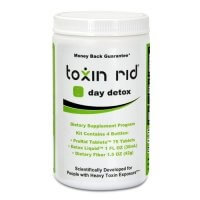What is a PES test NFL? A PES Drugtest NFL is a program designed by the National Football League (NFL) to protect players from the dangers of prohibited substances. The PES Drugtest NFL annually screens all active players for performance-enhancing drugs such as anabolic steroids, peptide hormones, and masking agents. Players who test positive for any of these substances are subject to suspension from play and fines. In addition, teams can be subject to fines if any of their players violate the policy. They need to test players to provide a fair game. Also, you can find synonyms, and performance-enhancing drugs (PED) tests.
 |
Our #1 Choice
Toxin Rid |
|
|
 |
Mega Clean + PreCleanse Pills |
|
The PES Drugtest NFL also provides resources for players regarding nutrition, dietary supplements, and recreational drugs. Players are educated on how certain dietary supplements could contain banned substances or ingredients that may result in a positive drug test. They are informed about the importance of speaking with a healthcare provider prior to taking any supplement. The NFL also has implemented policies to address common issues associated with recreational drugs such as marijuana use during off-season months.
The PES Drugtest NFL was created in 1987 in order to ensure fair play and uphold the integrity of professional football in the United States. It has been praised by organizations such as The Carter Center and The World Anti-Doping Agency (WADA). Today, the program continues to work towards its goal of providing a safe and healthy environment for all athletes competing in the NFL. So, the answer “what are peds/what is ped” is the same as “what is a pes test”.
For what substances football players are tested?
Common narcotic substances for which football players are tested for banned drugs include:
- Marijuana
- Cocaine
- Opiates
- Amphetamines
- Barbiturates
- Benzodiazepines
- Anabolic steroids
All of these drugs have been linked to serious health risks if used without proper medical supervision.
Marijuana is one of the most commonly abused drugs in football and has been found to impair performance on the field due to its effects on coordination and reaction time. It can also increase the risk of injury due to its effects on balance and judgment. In addition to physical risks such as short-term memory loss and motor impairment, marijuana use can lead to psychological issues such as depression and anxiety.
Cocaine use can lead to short-term effects such as euphoria and hyperactivity that may improve performance on the field; however, it can also increase heart rate and blood pressure significantly, leading to more serious long-term health concerns including heart attack or stroke.
The use of opiates such as heroin or prescription painkillers can impair judgment and increase the risk of overdose or death due to respiratory depression if taken in high doses over a long period of time.
Similarly, amphetamines like ecstasy or methamphetamine are often abused by football players in an effort to gain an edge on the field, but these drugs have been linked with numerous physical side effects such as insomnia, headaches, palpitations, tremors, agitation, aggression, and paranoia.
Barbiturates are sedatives that are sometimes used by football players who wish to reduce anxiety associated with game day performance; however, they also carry a risk for addiction or abuse due to their calming effects as well as potential overdose due to their low margin of safety when combined with other substances like alcohol or other drugs.
Benzodiazepines like Valium are also commonly abused for their tranquilizing effect; although useful for reducing performance anxiety they too can cause addiction or dependence when taken in high doses over long periods of time.
Lastly, anabolic steroids are often taken by athletes seeking improved strength or endurance; however, this drug carries serious health risks associated with cardiac arrest or stroke as well as psychological side effects including extreme aggressiveness known as ‘roid rage’
PEDs/PES tests Protocol
PED test (same as pes test NFL) are conducted in a variety of ways, depending on the type of test being performed. Generally speaking, the process begins with collecting a sample of the athlete’s urine, blood, or hair. For urine samples, athletes are typically asked to provide at least 30-50 ml of their urine in a clean container which is then sealed and transported to another separate laboratory for further testing. For blood tests, there has been a move towards using dried blood spots which are simpler and faster to transport than whole blood samples. Hair samples on the other hand can provide evidence of an athlete’s drug use over extended periods of time and require very small amounts for testing. Ped policy is labs testing due to unbiased lab.
The main purpose of PED/PES drug tests is to detect performance enhancing drugs (as well as other prohibited substances such as narcotics) in athletes’ bodies by analyzing different markers found in their bodily fluids. These markers can be hormones, metabolites, enzymes or even chemicals that have been added directly to performance-enhancing drugs in order to increase their effectiveness. The laboratory team then uses high-tech analytical equipment including chromatography and mass spectroscopy to identify these markers and quantify them accurately.
Depending on the specific test being conducted and its complexity, the entire process can take anywhere from 1 hour up to several days until results are available. Once completed, they will be compared against established thresholds set by international governing bodies such as WADA (the World Anti-Doping Agency). If an athlete’s sample shows levels exceeding this threshold, it will be considered a positive result indicating that they’ve taken banned substances or performance-enhancing drugs. Ped test for NFL is the same as classic testing.

